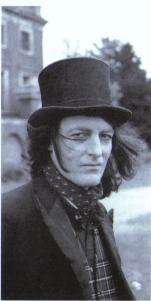The most extensive of singer-songwriter Martin Newell's various projects, Cleaners from Venus recorded some of the finest -- and most neglected -- British pop/rock of the 1980s. Its failure to find a wider audience is due at least in part to its unconventional method of distribution. After a short, bitter experience in the music business recording for a large label, Newell retreated to his home studio in the beginning of the 1980s, determined not to have to play by the usual compromising music business rules. As the chief of Cleaners From Venus, he and cohorts recorded several albums on their own, and distributed them via self-produced cassettes that were chiefly available by mail. There are thousands of such acts working in this manner in the cassette underground, but most of them are either off-puttingly amateurish, or forebodingly avant-garde and experimental. Cleaners From Venus were distinguished from the usual lot because they specialized in extremely witty, cheery, and compact pop songs.
But their choice to use underground distribution networks made sense. The musicians were too eccentric and, at times, experimental to withstand the homogenizing influence of record companies. What they lacked in technique--the early tapes often have a hissy sound and thumpy percussion--they more than made up for in pure heart. Newell, who wrote and sang virtually all of the material, is a tuneful British eccentric in the mold of Ray Davies or Andy Partridge of the XTC, with a humor akin to Monty Python or the Bonzo Dog Band. Cleaners From Venus couldn't be pigeonholed as revivalists, however, due to the '80s jangle of the guitars, and the expressively yearning qualities of Newell's vocals; the melodies were almost always infectious and bursting with harmonies.
Newell's main partner in the early days of Cleaners From Venus was drummer Lol Elliott. By the mid-'80s Martin had hooked up with the more conventionally skilled pianist Giles Smith, and the Cleaners' recording techniques had improved to the level of "real" records. One result was the glorious Living with Victoria Grey tape, with uniformly strong songs that usually reflected pastoral English life with affectionate irony. Another result of their (by cassette underground standards) increasing success and popularity were deals to produce bona fide vinyl LPs for record labels; they even got a deal with RCA in Germany. Almost predictably, the records, with bigger budgets and increased attention to audiofile concerns, sounded a bit mechanical and whitewashed compared to the cassettes, even when Cleaners were re-recording material that had originally been released on tape.
By the end of the 1980s, Newell had discontinued the Cleaners from Venus and founded a new, very similar project called Brotherhood of Lizards, which lasted for a while before bassist Nelson (no last name) joined New Model Army. In the 1990s, Newell has established a solo career on indie labels (see separate entry) that finds him carrying on the Cleaners tradition of thinking pure pop in an undiluted manner. Giles Smith has written a book about his obsessive rock fandom, Lost in Music, which draws to some degree upon his experiences in Cleaners from Venus. There have been a couple of Cleaners compilations, but unfortunately much of the group's best work is heard on their privately produced cassettes, which can be hard to find.
